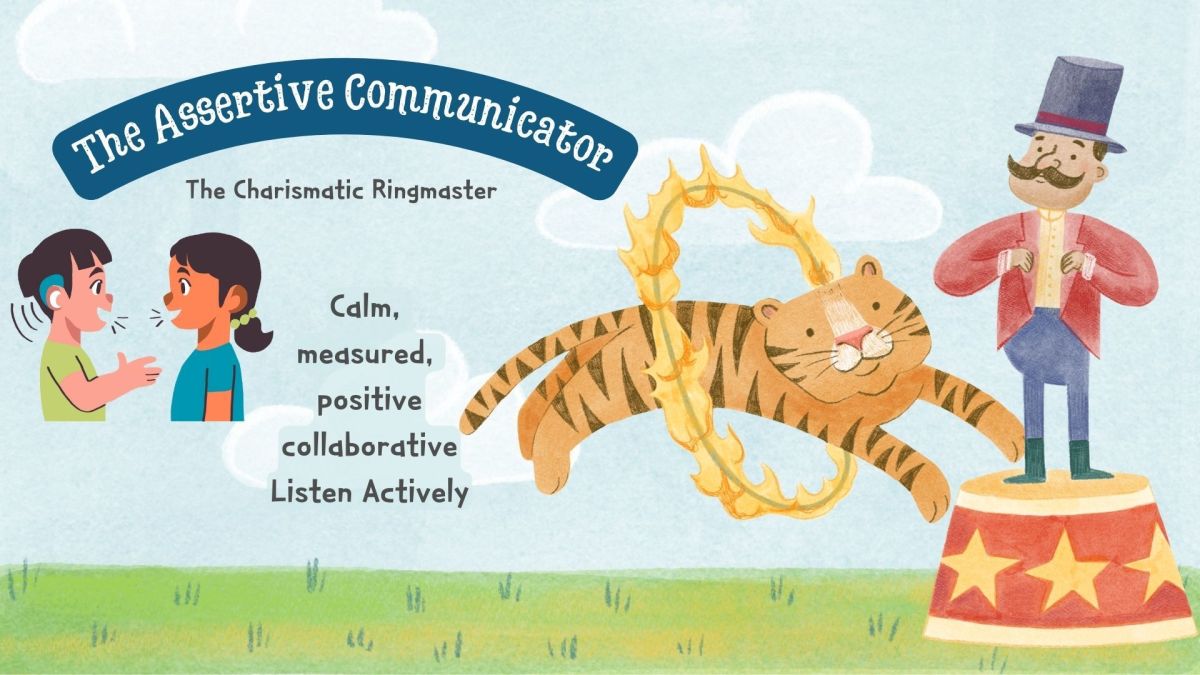How To Be More Assertive

Communication skills can be lacking in those who never learned to assert themselves for whatever reason. Here is a list of possible areas we may lack good communication in:
- Talking to a significant other in a relationship
- Speaking up for ourselves effectively and assertively
- Explaining what we want or need to a therapist/ lover/ boss
Why assertiveness? Assertiveness is a way of speaking to get your point across or needs met in such a way that is NOT aggressive NOT passive--but being firm and to the point (which takes courage at first.)
No one likes someone who acts passive-agressively. This means they will not tell you how they feel to your face especially if they disagree or their feelings are hurt-- instead they will retailiate (get you back) later.
No one likes someone agressive--who yells or forces their opinion down your throat.
Here are some ways to be ASSERTIVE:
Mary was angry at Dave her boyfriend for not cleaning up after himself. He left his dirty clothes on the bathroom floor for a whole week and never even thanked her when she kept putting them in the laundry. She is steaming mad and tired of it, but afraid to say anything for she might say the wrong thing and get him mad at her.
I tell Mary: Start off by saying something positive: you will really grab his attention this way.
So, after a little coaching Mary says to Dave:
Hi hon. How was your day? I really appreciate it that you work so hard at selling vacuums all day! But my housework has been overwhelming with the kids and all and I wanted to ask you, Please put your dirty clothes in the hamper. It would make me feel alot better that they are not hanging around in case I forget or company comes and sees them.
By speaking thus, Mary is not being a coward and saying nothing. She is not being passive agressive and thinking of how to get him back. And she is not being rude or agressive by demanding anything. She is simply using the tools I gave her and:
- Thinking ahead what she will say (she can even write it down in a note)
- Making sure she gets his attention by being nice and polite first.
- Clearly stating what she wants to get done/ accomplish and following through with it.
This is a great example of being assertive.
Assertiveness takes practice but in the end you will get your needs met better and people will like and respect you for speaking to them in a mature, calm manner.
Now, if it doesn't work and Dave is rude to her or continues to leave dirty laundry:
1) She may need to address it again.
2) He may have a good reason for doing it, and if that is the case, they may need to renegotiate.
3) In many cases, she needs to be firmer and may even be able to allow herself to be more persistent or even "aggresive" back , but not until she is first assertive. Like with a child, we should be calm and stern, but if they act like "brats" we have the right to Time Out or discipline and the same goes with adults; we should be firm first and if that fails be firmer still.
What would have happened if Mary was not Assertive?
If Mary was weak and said nothing, nothing be done and Dave wouldn't even be aware he was irritating her and this would be passive agressive because Mary would continue to be irritated and somehow take it out on Dave or herself by knowing she was or even without knowing--it would come out somehow in her being stressed, depressed, or even angry.
If Mary was agressive, and just yelled at Dave, "You lazy jerk! Stop leaving your crap around!" She would feel momentarily better but Dave would be angry most likely and he would not respond well to her yelling. Most people like the "carrot" and not the "stick", meaning they like to be told nicely and rewarded for good behavior, not punished......
So by being assertive, most likely Dave would respond: "I'm sorry, honey. I didn't even notice I was doing that. I'm glad you pointed it out."
What if the problem was much larger or smaller?
Always use the basic assertiveness skills by
- Thinking ahead what to say
- Speaking calmly and clearly
- Being direct and honest while polite
- Compliment first
These habits will bring you a long ways in communication with any situation.
People will praise and appreciate you for your directness and honesty and polite way of saying what you mean. Mean what you say without being mean!!









